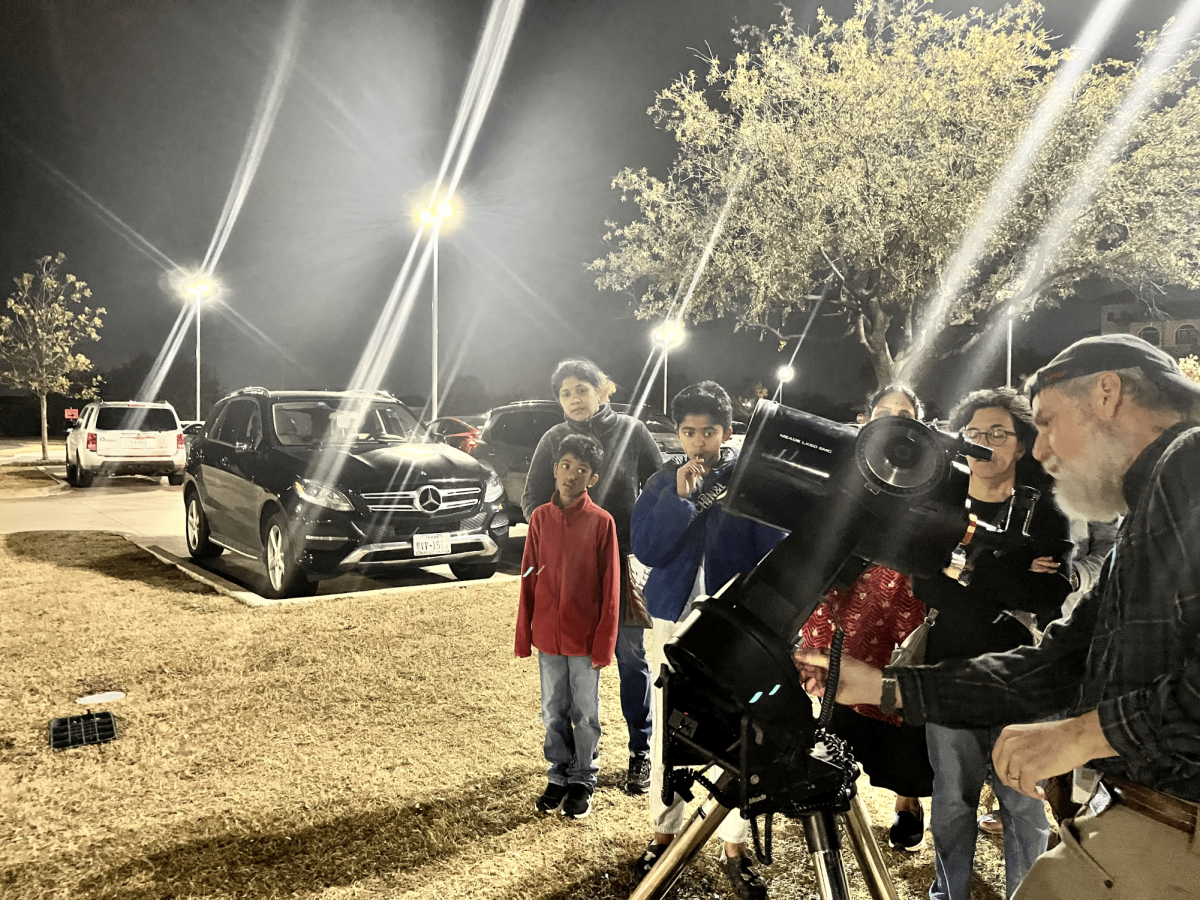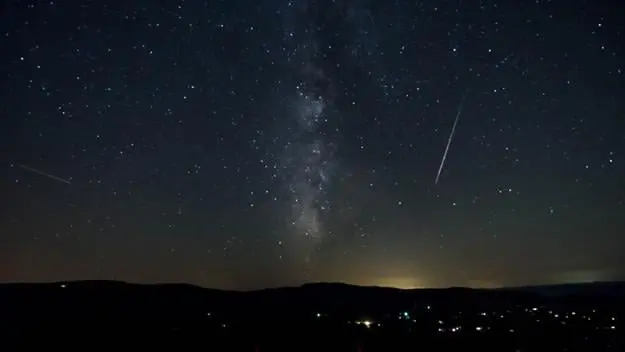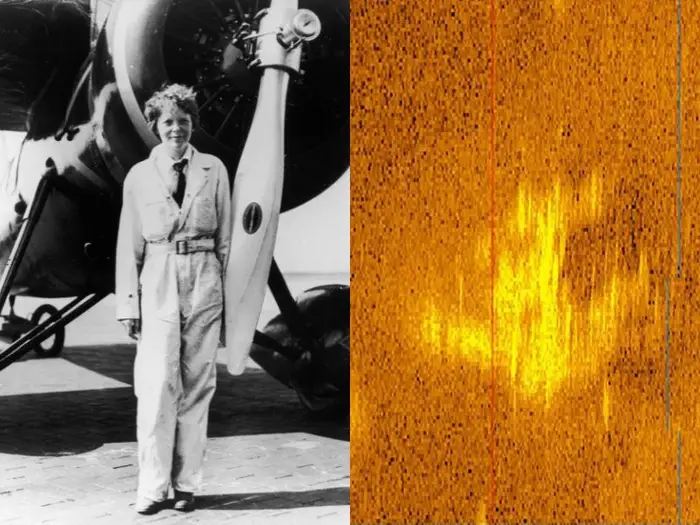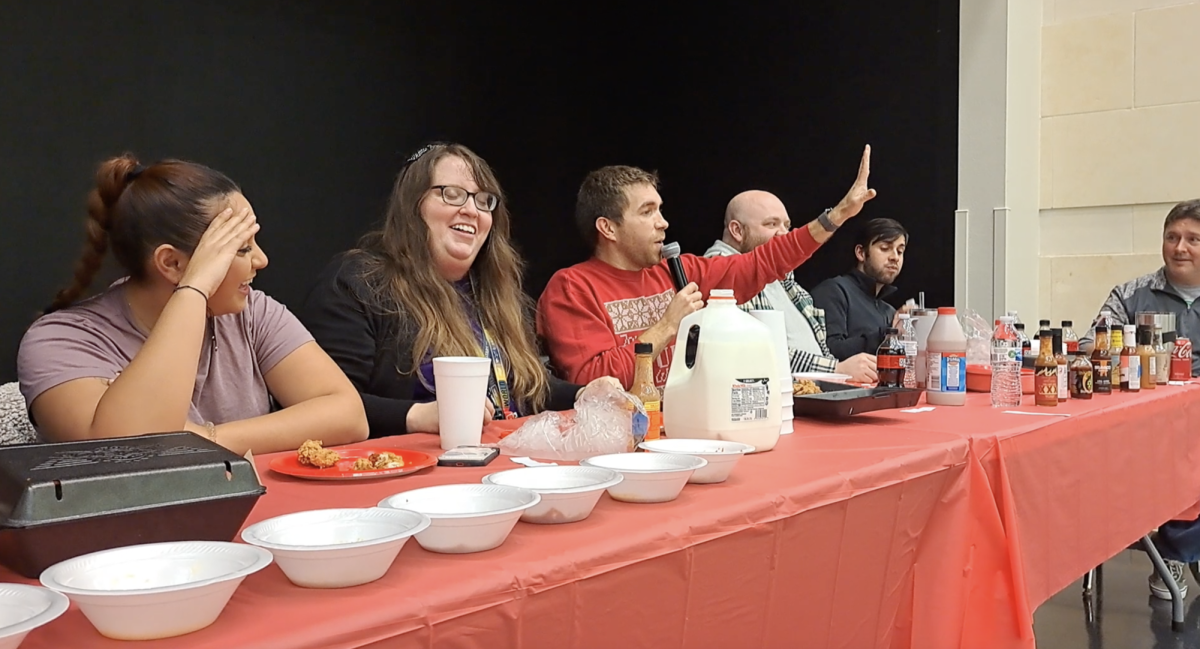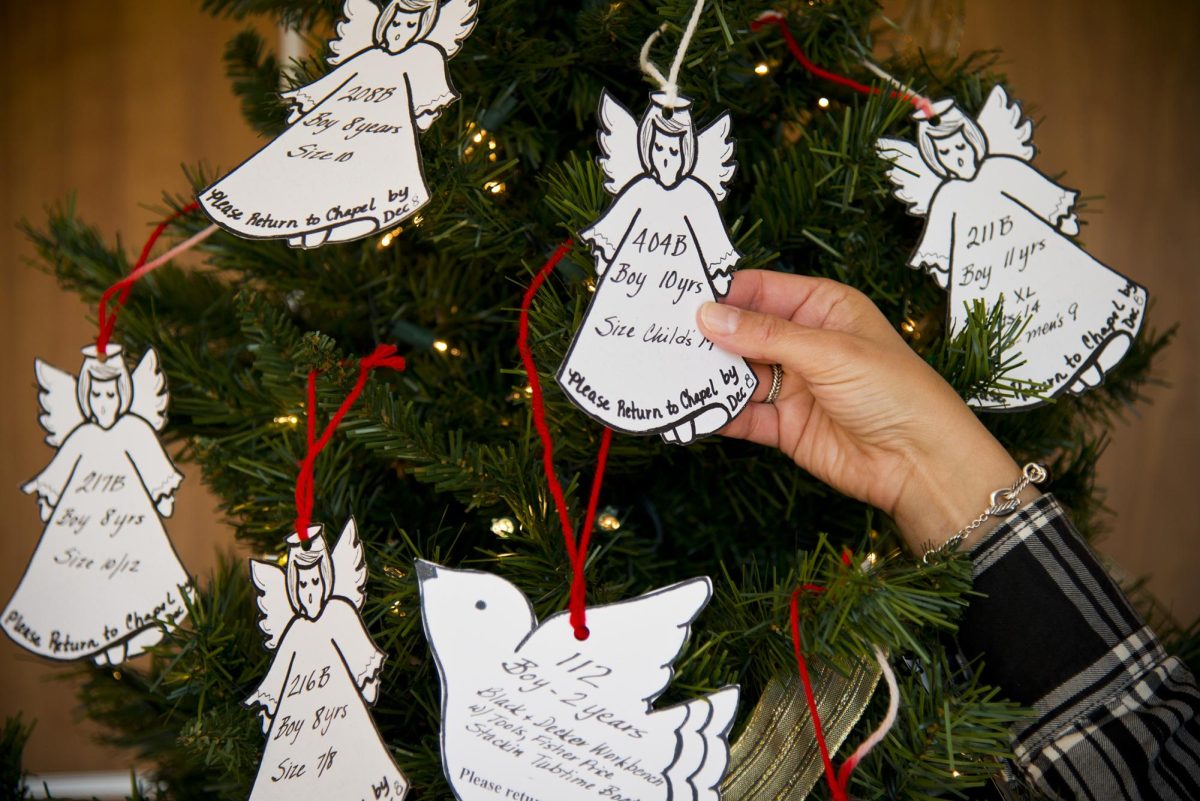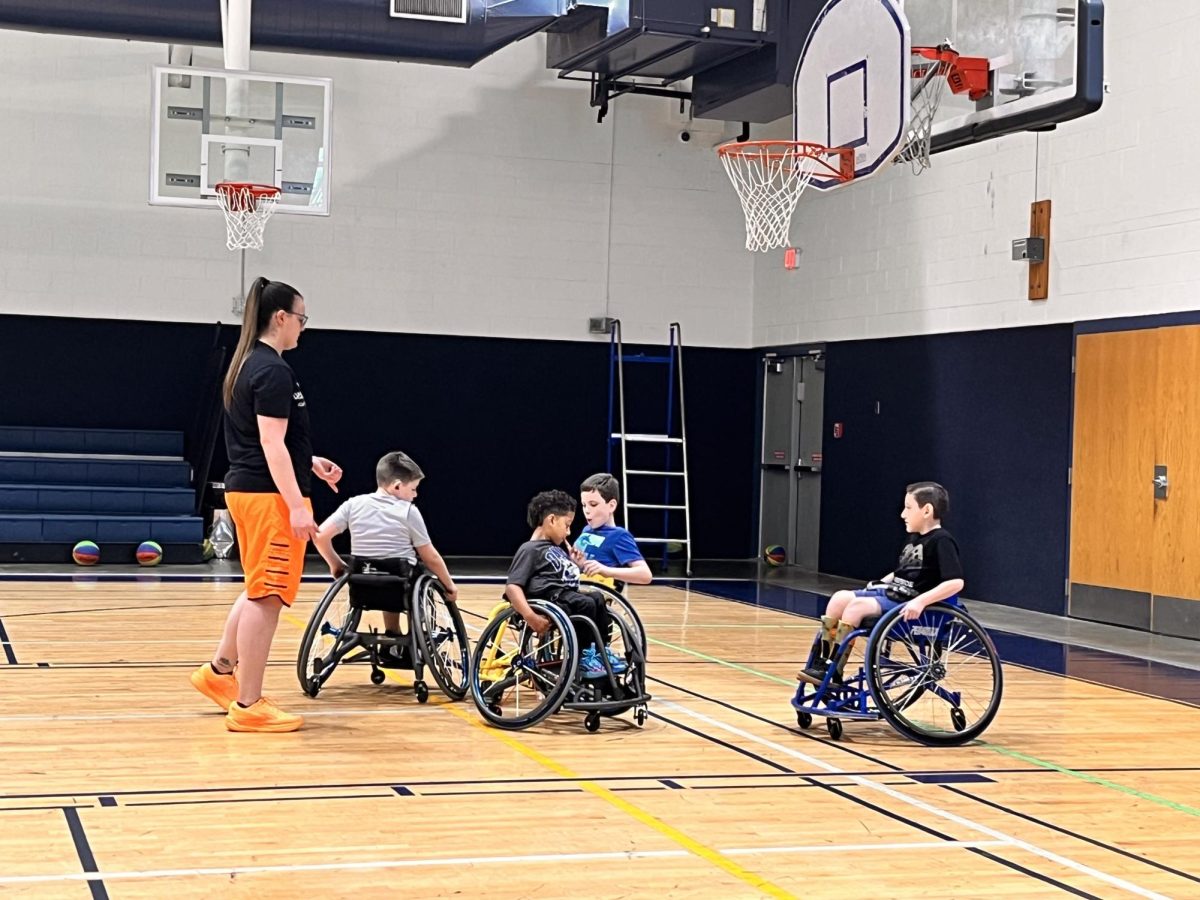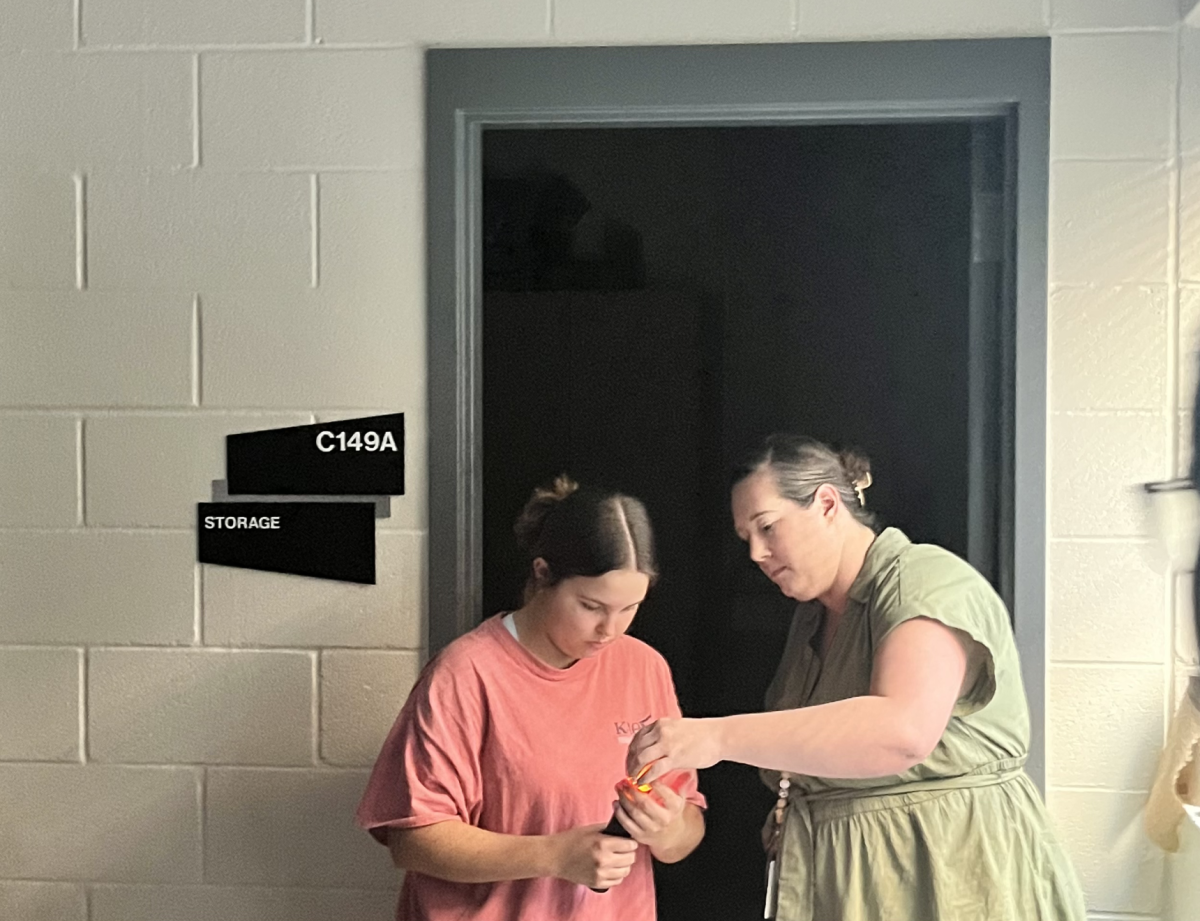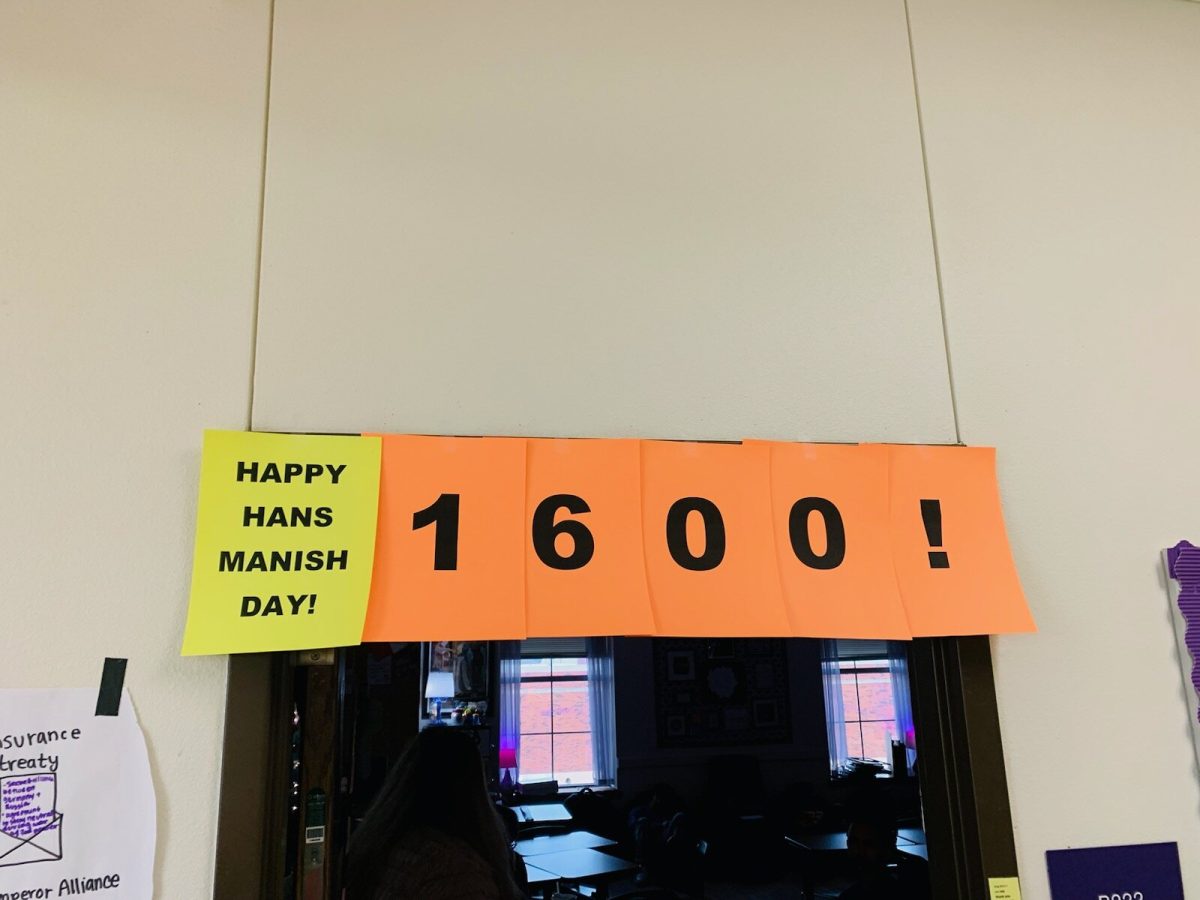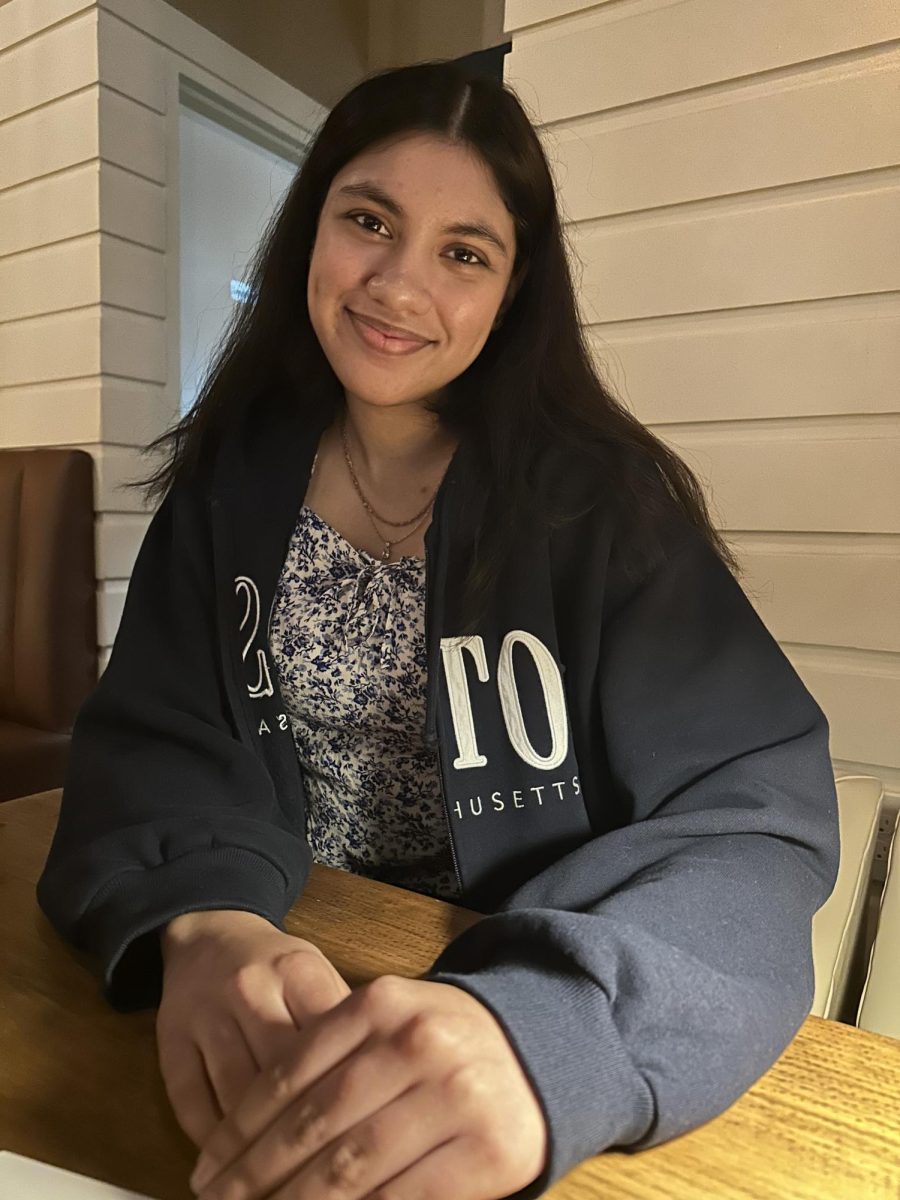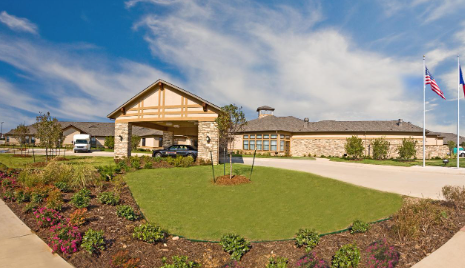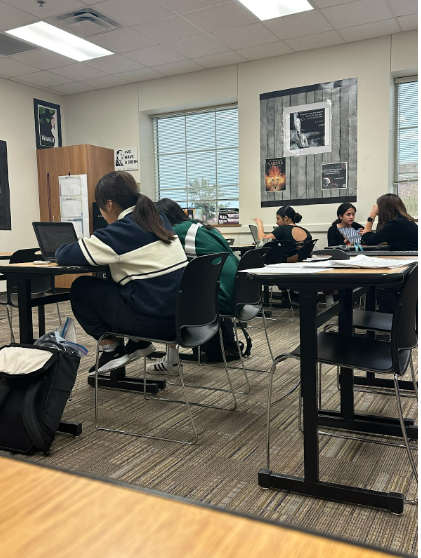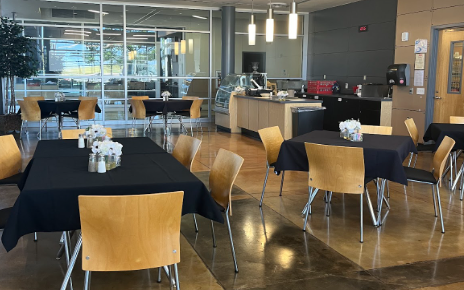The stars glimmer against the night sky. A crowd huddles around a large telescope. While the equipment focuses, people excitedly exclaim as they observe a faint white dot in the distance– Jupiter, the fifth planet from the sun.
For NASA Solar System Ambassador Les Murray, sights like these are a common occurrence.
On Dec. 17, Murray conducted ‘Community Astronomy Night,’ an event at the Frisco Public Library to teach the community the basics of stargazing through telescopes. The gathering, which included a seminar led by Murray, activities for elementary students interested in science, and a panel with the Sci-Tech Discovery Center, is part of NASA’s mission to expand astronomy education.
“I really enjoy doing [these events],” Murray said. “[NASA] want[s] the best engineers [and] scientists, and it’s important to spark an interest early [on]. In fact, [they] have a ton of educational resources that [students] can [use to] learn about all kinds of subjects in STEM. There’s something fascinating everywhere you look.”
The Solar System Ambassadors program, composed of 1,100 volunteers across the United States, educates the public about NASA’s work, and raises youth interest in the science and engineering fields.
“[The program] is designed by NASA [for multiple reasons],” Murray said. “One, [is to] let people know how their money is being spent [by the organization, and] so people will be interested in STEM. [Through this, the public] gets to talk to the scientists that are studying [the field] and reporting information [back] to [them]– that’s the great thing about NASA.”
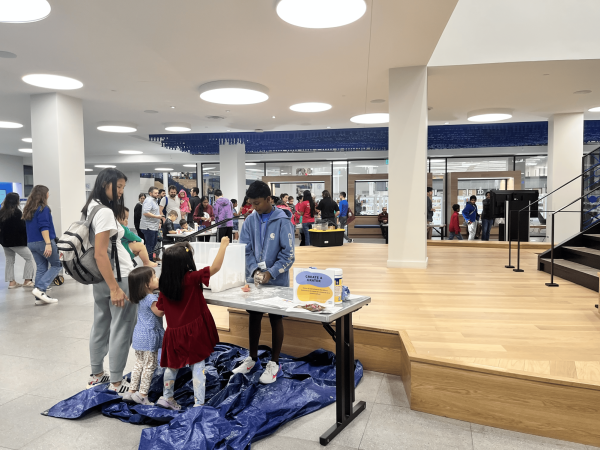
Parent and attendee James Hubble believes that the event’s interactive nature allows for greater learning.
“It’s very cool, with all of these different stations demonstrating the various [concepts],” Hubble said. “The telescope [tutorials] and the presentations [are] incredibly engaging and helpful– [they] really take it to another level.”
Students also feel that events such as Murray’s allow them to connect with their passion for space.
“I like how space is unique– it’s completely different from our home here on Earth,” elementary student and attendee Sachiv Anandkumar said. “These types of events actually help people understand things they want to know– [whether that’s how to] use a telescope, [or] to explain space [as a whole].”
Murray advises students interested in astronomy to take the initiative to pursue their passion by joining local astronomy clubs, online groups, and finding a mentor.
“The interesting thing about astronomy is that everybody you meet has an interesting story– they are always characters,” Murray said. “Find somebody with the passion [for the field]. They will tell you a million things you didn’t know, show you techniques, and you’ll build a camaraderie that I really think makes [the experience] twice as great.”
Ultimately, Murray appreciates seeing younger generations’ involvement in astronomy.
“It’s really nice when you have the kids that will come up and say ‘I really enjoyed it’ [after the presentation],” Murray said. “Some of them even come back over and over again. Seeing the kids with that passion [is] really exciting– it’s a very gratifying feeling.”

